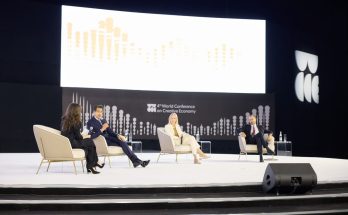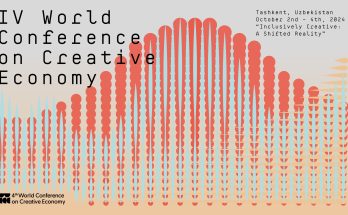 If yoga is a global brand today, inspiring millions around the world to pursue wholesome living, much of the credit goes to a man who was born in a small village in Karnataka. With the passing away of Bellur Krishnamachar Sundararaja Iyengar at the ripe age of 95 years, the nation has lost a stalwart in the Indian psycho-physical science of Yoga. Aptly, Yoga is referred as ethos of India’s most inspirational soft power to have created a global impact and to a great extent BKS Iyengar had enhanced this to newer heights. This renowned Yoga Guru, often named as the father of modern Yoga, breathed his last at Pune in India’s western state of Maharashtra on August 20.
If yoga is a global brand today, inspiring millions around the world to pursue wholesome living, much of the credit goes to a man who was born in a small village in Karnataka. With the passing away of Bellur Krishnamachar Sundararaja Iyengar at the ripe age of 95 years, the nation has lost a stalwart in the Indian psycho-physical science of Yoga. Aptly, Yoga is referred as ethos of India’s most inspirational soft power to have created a global impact and to a great extent BKS Iyengar had enhanced this to newer heights. This renowned Yoga Guru, often named as the father of modern Yoga, breathed his last at Pune in India’s western state of Maharashtra on August 20.
Born in an obscure village of Bellur near Kolar in Karnataka in 1918, he heralded his own brand of yogic workouts that were termed as the Iyengar Yoga. Despite facing several odds early in his life like loss of his father at a very young age and even frail health, he learnt the intricacies of Yoga from his brother-in-law T. Krishnamacharya in Mysore, prior to coming over to Poona (now Pune) in 1936. It was in this city that he began his career as a Yoga Guru while still in his teens that ultimately resulted in the setting up of his own centre devoted to Yogvidya in 1975. He named this after his wife Ramamani, who died before him at the age of 46, two years earlier. Meanwhile, he had made a mark as a renowned Yoga Guru with his innovative concepts which were improvised versions of Patanjali Yoga Shastra.
The mushrooming of Yoga schools across the globe owes much to B.K.S Iyengar since there were numerous misconceptions that he refuted and also convinced thousands in the West on the realistic aspects of this Indian science of yore. He disproved the views that Yoga is an exclusive Hindu practice by projecting its holistic values in terms of health and longevity. Going by the modern parlance, he depicted Yoga in a ‘user-friendly’ manner.
 Commenting on this aspect of Yoga being viewed abroad, he had reportedly said, “I find that the East absorbs Yogic philosophy far better. Yoga is an emotional subject and in the West, they calculate from the head while the East banks on the intelligence of the heart. They are both strong in their own spheres. But I find that nations which are geographically centred in the world map such as Russia and Africa have the best of both approaches. They use the head as well as their heart to their advantage. Yoga teaches us to move from Kurukshetra to Dharmakshetra and God knows whether we need fewer Kurukshetras today! Yoga not just for Hindus… Yoga is an Indian heritage, not a Hindu property.”
Commenting on this aspect of Yoga being viewed abroad, he had reportedly said, “I find that the East absorbs Yogic philosophy far better. Yoga is an emotional subject and in the West, they calculate from the head while the East banks on the intelligence of the heart. They are both strong in their own spheres. But I find that nations which are geographically centred in the world map such as Russia and Africa have the best of both approaches. They use the head as well as their heart to their advantage. Yoga teaches us to move from Kurukshetra to Dharmakshetra and God knows whether we need fewer Kurukshetras today! Yoga not just for Hindus… Yoga is an Indian heritage, not a Hindu property.”
This famed Yoga Guru’s book Light on Yoga has been translated into 19 languages, with over three million copies being sold. The Yoga institutions established by him numbering almost 72 are spread across Europe, Australia and the US. He made his presence felt even in China and had wished that his venture would be a point of connection between the two neighbouring Asian giants.
Commenting on the Chinese Tai Chi and other Oriental formats of healthy life, he had opined that the Chinese have been practising physical regimens that have spiritual connections for centuries. As he put it, they have the concept of Yin and Yang, which is similar to what we call Ida (consciousness) and Pingala (self) as such their mutual links are evident.
During one of his visits to China, he noted, “There are many Yoga practitioners in China today. I mean to show them how to start from scratch and aim for the ultimate. Asanas and Pranayama (breath controlling exercises) are perceivable aspects of Yoga, but there are other layers which are not that obvious. These connect Yoga to our life, our spiritual and moral health. Few talk about these aspects anymore.”
 As for the celebrities around the world who passionately adopted Iyengar Yoga are the famed violinist Yehudi Menuhin, author Aldous Huxley and cricketer Sachin Tendulkar apart from the highly respected philosopher Jiddu Krishnamurthy. Even the uniformed personnel including the para- military forces have invigorated themselves with yoga. Reportedly, prisons in Israel have adapted Iyengar Yoga as an ideal medium to reform the inmates in the prisons of Israel.
As for the celebrities around the world who passionately adopted Iyengar Yoga are the famed violinist Yehudi Menuhin, author Aldous Huxley and cricketer Sachin Tendulkar apart from the highly respected philosopher Jiddu Krishnamurthy. Even the uniformed personnel including the para- military forces have invigorated themselves with yoga. Reportedly, prisons in Israel have adapted Iyengar Yoga as an ideal medium to reform the inmates in the prisons of Israel.
For his commendable work B.K.S Iyengar was conferred with Padma Shri in 1991 and also the coveted award of Padma Bhushan in 2002.
India’s Prime Minister NarendraModi tweeted on learning about Iyengar’s demise to say: “I am deeply saddened to know about Yogacharya BKS Iyengar’s demise and offer my condolences to his followers all over the world.”
A seasoned journalist wrote to say that undoubtedly, India’s growth as a global power is dependent as much on soft power as it is on hard power.
B.K.S Iyengar and his pioneering work in spreading the message of Yoga across the world has provided India with a wonderful tool through which it can share its ancient and contemporary knowledge.
It is said that BKS Iyengar will be remembered not only for his work in the field of Yoga but also as a catalyst in contributing to India’s soft power, which put together could be termed as the apex of his legacy in the country’s rich cultural heritage.
Author Profile
- India Writes Network (www.indiawrites.org) is an emerging think tank and a media-publishing company focused on international affairs & the India Story. Centre for Global India Insights is the research arm of India Writes Network. To subscribe to India and the World, write to editor@indiawrites.org. A venture of TGII Media Private Limited, a leading media, publishing and consultancy company, IWN has carved a niche for balanced and exhaustive reporting and analysis of international affairs. Eminent personalities, politicians, diplomats, authors, strategy gurus and news-makers have contributed to India Writes Network, as also “India and the World,” a magazine focused on global affairs.
Latest entries
 DiplomacyJanuary 5, 2026India walks diplomatic tightrope over US operation in Venezuela
DiplomacyJanuary 5, 2026India walks diplomatic tightrope over US operation in Venezuela India and the WorldNovember 26, 2025G20@20: Africa’s Moment – The Once and Future World Order
India and the WorldNovember 26, 2025G20@20: Africa’s Moment – The Once and Future World Order DiplomacyOctober 4, 2025UNGA Resolution 2758 Must Not Be Distorted, One-China Principle Brooks No Challenge
DiplomacyOctober 4, 2025UNGA Resolution 2758 Must Not Be Distorted, One-China Principle Brooks No Challenge India and the WorldJuly 26, 2025MPs, diplomats laud Operation Sindoor, call for national unity to combat Pakistan-sponsored terror
India and the WorldJuly 26, 2025MPs, diplomats laud Operation Sindoor, call for national unity to combat Pakistan-sponsored terror







